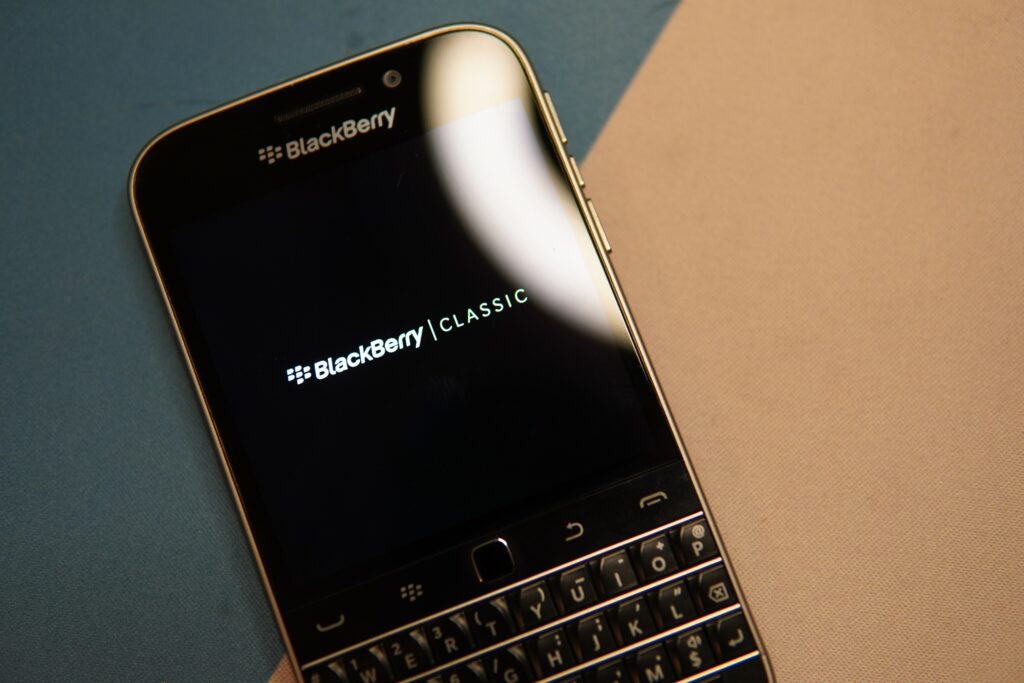Why did BlackBerry fail? If you ask business analysts, they’ll probably list ten different reasons. But if you take a few minutes to think about those reasons, they all come down to just one thing. And it’s an object lesson in why we miss the obvious.
There’s a popular quote: “Learn from the mistakes of others – you can’t live long enough to make them all yourself.” And it’s great advice. In the same way, you should also learn from the successes of others — something BlackBerry also got wrong.
How does this apply to your business or brand? Very simply, by understanding what went wrong (and what to focus on), you can avoid the same pitfalls.
From Power to Poverty
At one point in time, BlackBerry was the most valuable company in Canada. It’s not hard to see why. The company was selling a product that revolutionized messaging and mobile email, and owning a BlackBerry became a status symbol. Even President Obama famously refused to give up his BlackBerry as he took office in 2009. If you were a politician, high-profile banker, lawyer, or stockbroker, you had a BlackBerry.
In fact, the devices were so popular – and addictive – that they were often jokingly called ‘crackberries’. The iconic BlackBerry boasted 2 features that made them irresistible to the audience of the day:
- The BBM messaging platform (considered revolutionary at the time)
- On-the-go email access
At the time, there were no real competitors. Also, the BlackBerry software platform was considered to be highly secure, making it ideal for business.
In its heyday, BlackBerry commanded almost 21% of the global mobile market. Now, virtually a relic, the last remaining BlackBerry users account for only 0.2% of the market. It’s hard to imagine a more dramatic plunge from such a position of power.
So why did BlackBerry fail? How is it possible to collapse a self-built market worth almost $6 billion in annual profits?
Ignoring the Winds of Change
If your business isn’t evolving, it’s dying. And that’s as true today as it was in the early 2010s as BlackBerry prospered. Pretty obviously, with a potentially global customer base available, competitors began to assert themselves. Apple and Samsung, particularly, were beginning to explore alternative technologies. And they did something that had never occurred to BlackBerry:
They asked potential customers what they wanted.
Why did Blackberry fail to heed the signs of impending change? One possible reason might have been the overwhelming market share they enjoyed. They literally believed that nobody could pose a credible threat to their brand.
Knowledge is power – and staying abreast of trends is a business survival skill. For example, take a look at these 12 current trends in the information tech sector you should know about.
Trends arise because of customer needs, not because of a corporate wishlist. And because BlackBerry forgot that fact, they fell prey to 3 glaring weaknesses.

The 3 Critical Weaknesses of BlackBerry
The failure of a multi-billion dollar company isn’t the result of one poor decision or blind spot. It’s most often the compounding effect of a string of bad choices. And the larger your company, the easier it is for complexity and layers of bureaucracy to derail you.
Here are 3 key areas where Blackberry chose unwisely:
Unwillingness to Adapt to Change
Apple, BlackBerry’s closest competitor, realized early on that customers wanted a more intuitive hand-held device. Surveys showed that although BlackBerry clients liked their phones, they wanted something less clunky. They also wanted more features with less hassle.
In response, Apple began innovating by introducing:
- Touch screen technology
- Better camera integration
- Slimmer, more streamlined devices
- Applications that went beyond business – for example, music and image storage
Ironically, BlackBerry produced the BlackBerry Storm – a touch screen model – in response to Apple’s iPhone, but they made a fundamental mistake. Instead of marketing the Storm to a neutral audience, they tested it on existing BlackBerry users.
The result? The existing users were too used to their keyboard-style devices – and hated it. BlackBerry assumed that touch screens just wouldn’t take off. And in doing so, they made a catastrophic miscalculation.
Out of Touch With Competitors – and the Market
Why did BlackBerry fail to listen to consumers? Simply because they’d built an empire solely out of catering to businesses and professionals. They didn’t realize that public focus was shifting to a different set of priorities:
- Informal, effortless social communication
- Instant access to entertainment
- Access to a wider range of applications
- A desire for greater interconnectivity – to the cloud and to other devices.
- A better and simpler web experience
Unsurprisingly, when consumers were faced with a choice, they chose Apple and its lookalikes. It also quickly became obvious to professionals that an iPhone could be used for business just as effectively as the BlackBerry had.
An Outdated Operating System
Even in the early days of Apple and Android, you could access and download far more apps than you could on a BlackBerry. Out of stubbornness (and possibly professional jealously), BlackBerry refused to open their own app store to ‘outsider’ apps. This was another terrible decision in a long list of terrible decisions. By the time they changed policy, it was too late, and customers were abandoning the BlackBerry ship in their millions. If anybody asks you ‘why did BlackBerry fail?’, this would probably be the biggest reason.
There was also a persistent slow loading and freezing problem with the BlackBerry operating system. And to add insult to injury, you couldn’t connect to WiFi with a BlackBerry either!
Quite honestly, as a consumer, which one would you choose?
How Not to Crash Your Business
BlackBerry, as a brand and business, fell to unheard-of lows. In fact, by 2013, the then-CEO tried to sell BlackBerry. Nobody wanted it.
The BlackBerry company still exists. With market value of under $10 per share, it’s become what’s known as a ‘zombie stock’. It no longer manufactures phones or handheld devices at all. There are periodic rumored plans to try and revive it as a cybersecurity firm, but you might not want to hold your breath.
Why did BlackBerry fail to listen to its consumers? You could summarize the answer like this:
- They believed that they could shape customer opinion and preference
- Their customer base had changed, and they failed to see it
- By the time they reacted, it was too late
So, what can you learn from this that will aid your own business?
- Find out what your customers want – and give it to them
- Always be clear about who your customers actually are – and who they will be
- Keep evolving your business – and be prepared to pivot completely if required
Stay In Touch With Your Customers
One of the most cost-effective ways of ensuring you’re connecting with your customers is to engage a virtual secretary service. You only pay for the hours worked, and you get peace of mind knowing that a trained professional is assisting you.
Book a discovery call today and claim your free trial. A virtual assistant can save you time and cost – and add value to your business.





